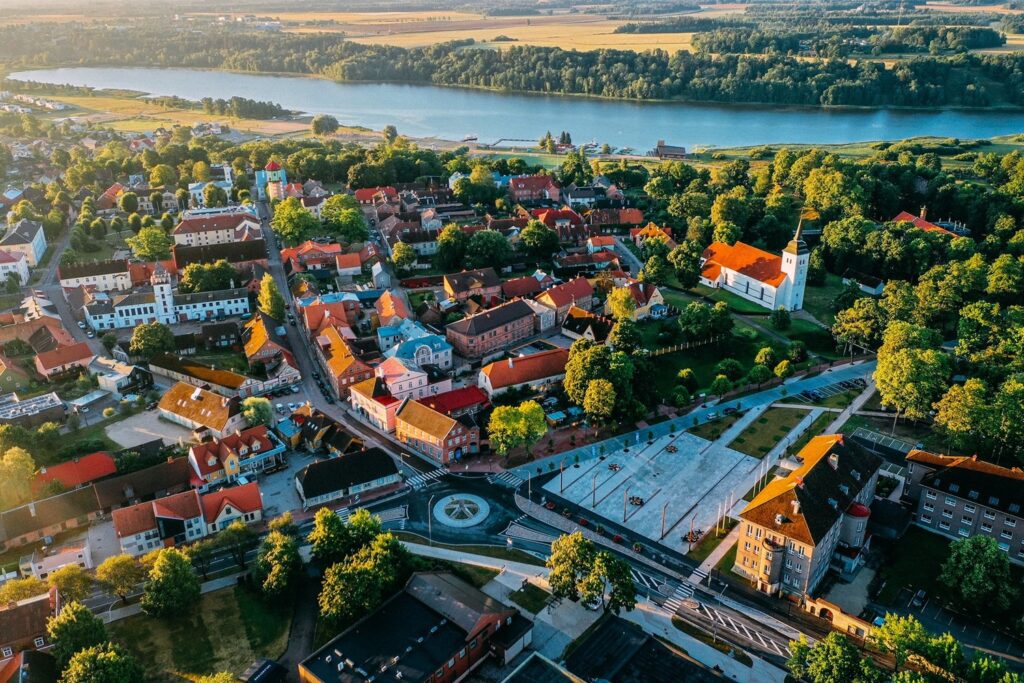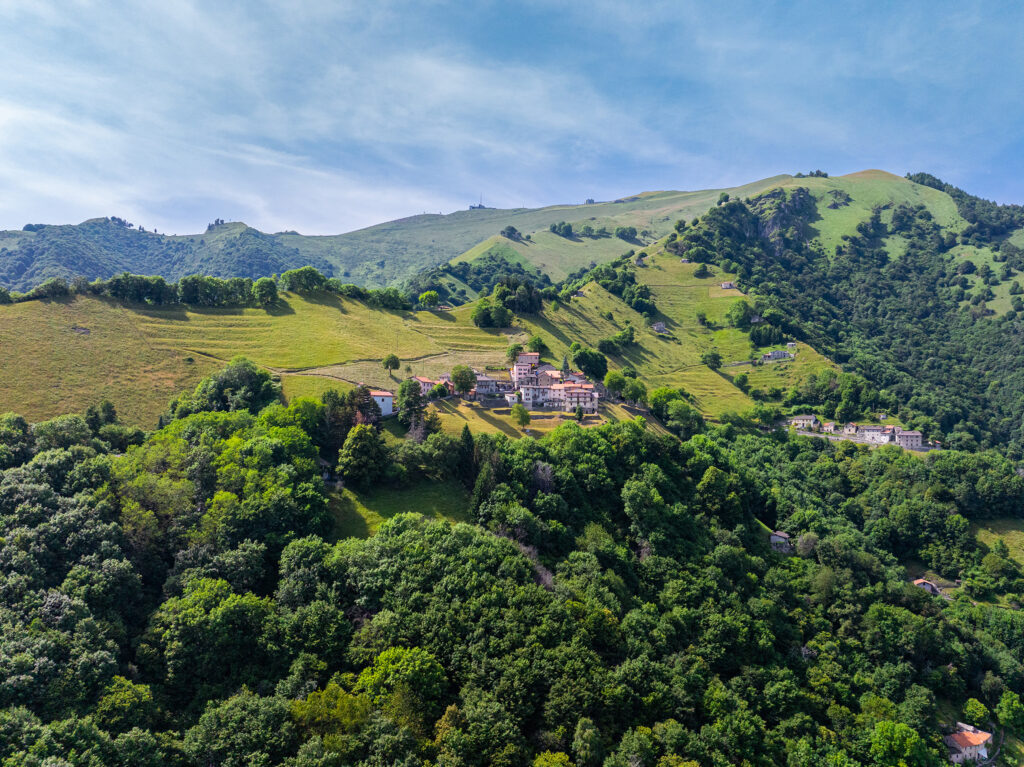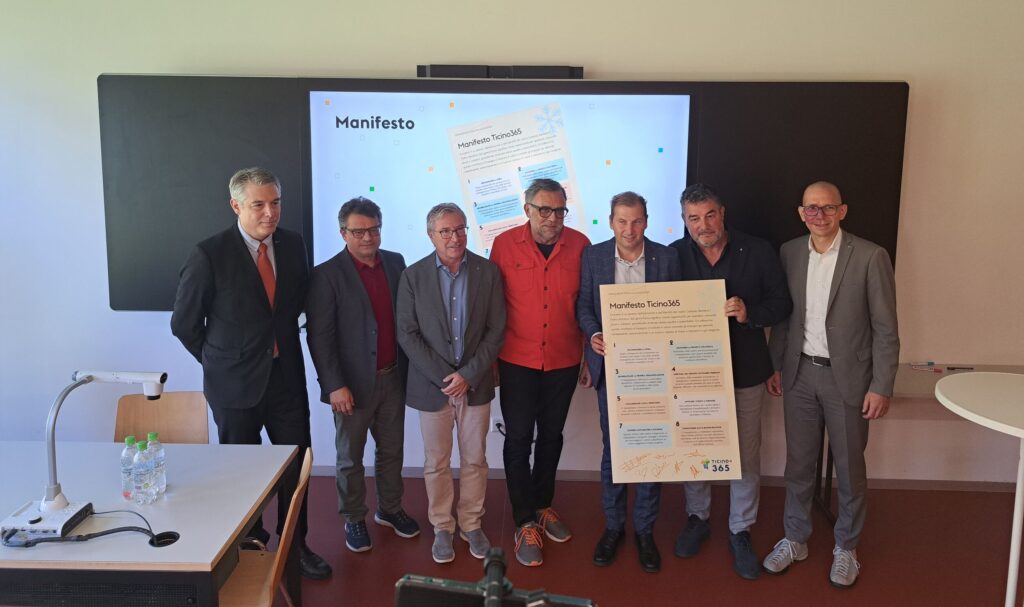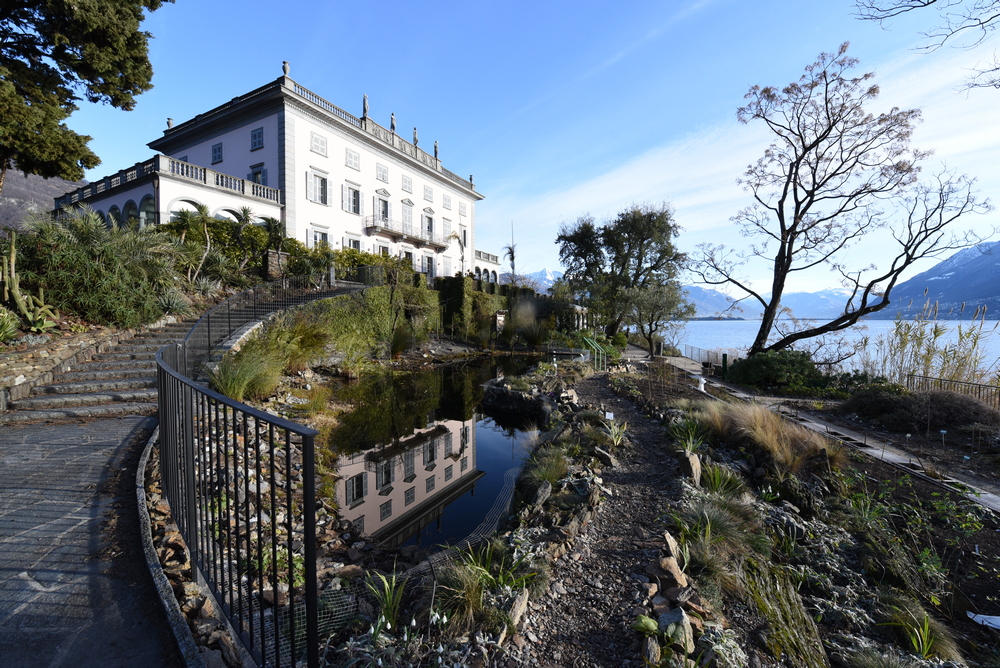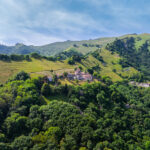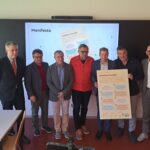Now in Chairwoman Suyana Foundation, bat You spent your adolescence and youth in Switzerland, then moved to Bolivia, a life-changing event. What do you, Ursula Kuhn, personally see as the milestones of your life?
«I spent my first 40 years in Switzerland, and I was always passionate about traveling, embracing diverse cultures, and recognizing the privilege of being born in Switzerland. In 2003, I founded the Foundation, initially visiting Bolivia. However, it wasn’t until 2005 that I moved to Bolivia, laying the foundation for Suyana. Embracing the chance to create something meaningful, I, armed only with my laptop, took on the challenge of establishing operations in Bolivia, navigating the absence of a physical office or team in Switzerland. The early stages were characterized by a hybrid office, with me constantly on the move. All significant achievements were collaborative efforts. Originating in Bolivia, expanding into Peru, and eventually reaching Switzerland, our team, along with various stakeholders, crafted a comprehensive program that notably improved the quality of life for many individuals and their communities. This collective accomplishment is a great part of my life’s journey, and I am proud of what has been achieved until today».
Reading the Suyana Foundation’s website, the impression is of an inner journey that led you to become interested in philanthropy. How did this process mature?
«In 2000, I embarked on a one-year sabbatical, during which a unique opportunity arose. Motivated by philanthropic individuals in Switzerland, I transitioned from the corporate world to create alternative pathways for a better future for families and communities living in extreme poverty. The inception of the foundation, born from the altruism of a group of persons within my Swiss network, aligned with my desire to explore and forge new paths for a better future. This trust pushed me out of my comfort zone, sparking the creation of Suyana. Delving into the different socio-economic landscapes in Latin America during my research, I identified Bolivia as the region’s poorest country in 2003. My first-hand experience there showed me the urgent needs of rural populations facing adverse climates and local challenges. Witnessing their resilience triggered my commitment to addressing inequities and driving meaningful change through the foundation».
Are there any encounters with people that took place during your first period in Bolivia that were crucial to your future decisions or also episodes that particularly influenced you?
«The foundation’s inception marked the start of my journey, armed with just a backpack and laptop as my office, in El Alto, La Paz, Bolivia. Immersed in local families’ lives, I understood their struggles. Expanding to rural areas, where these families migrated from, unveiled a harsh reality where the elderly, children, and youth faced a future lacking hope and opportunities, with deficient healthcare and education. But the relief these families were looking for by migrating to big cities, very often turned from hope into misère. They ended up with no work, living in a very vulnerable context and thus not being able to provide for themselves nor for their families. Inspired by their daily lives, I was convinced about creating a holistic programme to support them directly in the remote rural areas. This initiative aimed to generate hope, ease challenges, and strengthen the family nucleus, recognizing its pivotal role in improving children’s lives. My first visit to Bolivia in October to December 2003 was filled with challenges due to local social convulsion (Octubre Negro) where I navigated around street protests and challenging times. Now, 20 years later, I smile about the fact that nevertheless I consistently pursued my mission. Remaining closely connected with the served communities, the project’s development involved communities in a participatory approach, shaping the distinctive Suyana methodology. My journey, from Bolivia to Peru, is rich with encounters contributing to a story I plan to capture in a future book».
What was the decisive moment that prompted you to decide, I’ll go back home and set up a foundation?
«I founded the Foundation in Switzerland in 2003, deciding to give Suyana a Swiss structure to be able to serve different countries and geographies, then traveling to Bolivia for the first time. Suyana is the Aymara and Quechua word for ‘hope’».
The Suyana Foundation is based in Zug. Do you think Zug is a particularly attractive location for setting up a foundation, and if so, what advantages does Zug offer over another location?
«The reason for establishing the Foundation in Zug is tied to the fact that I live here, alongside the support of friends who have been with me since the outset. Zug’s location offers advantages, being close to other global foundations and the private sector. This proximity facilitates attracting talents and important contacts for us. Positioned at the heart of Switzerland, Zug provides easy access to various regions, boasting exceptional quality of life and favourable conditions for foundation operations».
What is the statutory purpose of the foundation and how is its organisation structured?
«Our headquarter is situated in Zug, characterized by a flat hierarchy, and organized by division. Additionally, we maintain separate offices in Bolivia (established in 2005) and Peru (established in 2009). Ultimately, both the Bolivian and Peruvian entities are subject to oversight and dependence on the Suyana Board of Switzerland. In both Bolivia and Peru, we engage local staff to ensure a deep understanding of and connection with the communities we serve through the “local for locals” model».
The purpose of the foundation is to provide development and charitable aid worldwide, particularly in the social, cultural, and educational fields, namely through…
«At Suyana, our core is a holistic approach, driven by a profound belief in the power of empowerment for lasting positive change. Since 2003, our mission has been to empower individuals, families, and communities by enhancing access to quality health, education, and livelihood opportunities, fostering engaged and self-sustaining lives. Drawing on extensive experience and local expertise, we collaborate closely with our dedicated teams and partners to achieve local impact. Our holistic community empowerment approach spans various countries, focusing on three pillars: Health, Education, and Livelihood. In healthcare, we prioritise prevention, engage with local authorities, and strengthen public health systems. For education, we enhance access, support knowledge and skills development, and reinforce public school capacities. In livelihood initiatives, we empower communities to establish and maintain stable sources of income while promoting environmental awareness. Suyana runs its own projects, collaborates with like-minded organisations, participating in projects aligned with our values. We carefully select, train, and oversee partners, aligning efforts for common objectives and mutual learning».
What are the most significant projects you have running?
«In Bolivia and Peru, our holistic community empowerment programme tackles the multifaceted needs of families in poverty. Developed through thorough engagement and participatory analysis, the programme integrates all stakeholders—families, schools, communities, and municipalities. Despite initial challenges, families recognize the collective transformative process and understand the changes for their benefit, embracing the empowering notion of ‘living well through personal effort.’ Our local presence builds trust, and strong liaisons with government entities enhance credibility. Expanding globally, we implement Community Empowerment Projects in Africa, and in addition, we launched Education and Economic Development initiatives in Bolivia and Peru. In Switzerland, we selectively support livelihood projects. As a consequence, we are approaching new partners and financial sources. This holistic strategy deepens our commitment to fostering positive change across diverse societies and geographies».
What are the biggest challenges you are facing with the foundation?
«Our challenges involve finding skilled and dedicated talents for our teams. In addition, collaboration gaps between ministries (Health, Education, Economic Development, Environment) can be a challenge among others. Our central value remains; we stay, even in difficult externalities».
What activities do you think can be streamlined?
«In 2020, when the decision was made to expand, we recognised the need to streamline certain areas or activities that were still in progress. With the growth, there always comes the necessity to clarify certain roles and responsibilities and improve internal processes to work as efficiently and effectively as possible. In the past years, we have reviewed our strategic priorities and adjusted our project portfolio where necessary (e.g. Education Switzerland) as well as shaped our communication and visibility efforts to transparently reflect our intervention model».
What do you consider as your biggest achievements in recent years?
«Due to the pandemic, Chairwoman Suyana Foundation faced disruptions, forcing us to redirect our activities during that year. The planned three-year program in Peru, in one Municipality financed by the Economy Ministry, faced a sudden halt due to the unexpected lockdown. In response, Suyana implemented an Emergency plan in Bolivia and Peru, reinforcing the first level of the public health care system and providing materials to remote schools and health centres. Education projects in Switzerland faced delays, but agricultural projects continued. The pandemic highlighted global disparities, especially between rural and urban areas, emphasizing the persistent lack of basic services. Reflecting on this, the Suyana Board decided on an expansion to new areas and continents to bring our experience to areas in need. Building on successful growth in Bolivia and Peru, the Board decided on a strategic expansion, extending our activities to Sierra Leone, Rwanda, Uganda, and initiating a project in refugee camps in Greece. This expansion marks both personal and institutional development, including the establishment of a solid resource mobilization unit, paving the way for Suyana’s growth and impact in the next».


